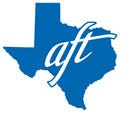Amidst backlash on discipline, charter starts an alternate placement setting; poll shows support for pub ed funding
by Rob D’Amico, Texas AFT Communications Director
(Follow on Twitter @damicoaustin and @TexasAFT)
Charter schools face backlash on discipline exemption, although one chain is wading into alternative settings for its students
Last week charter school officials faced some hard questions from members of the House Public Education Committee on why charters should be allowed to reject admission to students because of discipline reasons. (Traditional public schools can’t.) Also part of the hearing’s focus was the significantly higher number of expulsions and some types of suspensions in charters versus public districts.
Today, that committee passed HB 43 by Rep. Gina Hinojosa (D-Austin), prohibiting charters from excluding students based on disciplinary history. The Texas Charter School Association testified against the bill, in large part because it said charters didn’t have the Disciplinary Alternative Education Programs (DAEPs) — which almost all public school districts must have — to refer students to if they were too disruptive or unsafe for a regular classroom.
Yesterday’s Houston Chronicle ran: “Aiming to cut expulsions, YES Prep opens disciplinary alternative education program,” which outlines how that charter chain began a DAEP program for its campuses in the Houston area this year.
Before YES Prep Public Schools opened Thrive last September, its first foray into running a disciplinary alternative education program, students sitting around the circle likely would have not gotten a second chance at the charter. YES Prep students who engaged in serious misconduct often were forced to leave school, resulting in the state’s highest expulsion rate — 6 per 1,000 students — over the past five years.
With the debut of Thrive, the 11,400-student charter district is changing its ways. Rather than banishing its most unruly children to other school districts, the charter now sends the vast majority to Thrive, located inside one of its middle schools on Houston’s north side.
….Unlike traditional independent school districts, which are legally mandated to operate disciplinary alternative education programs, charter schools have no such requirements. Nor do charters contract with Texas juvenile justice alternative education programs, where the most serious student offenders are placed for several weeks or months before being returned to their home districts. All traditional school districts in counties with populations exceeding 125,000 people must make such accommodations.
Instead, charter schools have handled discipline by suspending students or expelling them without placement, meaning they must enroll in another district.
As a result, six Texas charter school districts combined to expel nearly 400 students without placement last year, with more than half of those occurring at one suburban Dallas district, Texas College Preparatory Academies. Only five traditional districts expelled more than 10 students without placement last year.
The article counters the argument from charter officials at the hearing that they didn’t have the space or resources to offer DAEP settings. The truth is that they just have never had to attempt to, since Texas is the only state that allows this disciplinary exclusion for charter schools. Their other argument is that they don’t want violent kids on their campuses — but testimony in the hearing showed that many charter schools have discipline policies that can result in expulsions for minor offenses and disruptions by students.
Past research has shown that some charters “shed” students with discipline problems in an attempt to improve their achievement and graduation rates. Texas AFT supports this bill as yet another way to ensure that publicly-funded schools do not discriminate based on discipline.
In Brief…
- “80 percent of Texans say more state funds should go to schools,” reads the Headline from this Houston Chronicle article. That’s the main takeaway from a new University of Houston poll of Texans, with another predictable issue favored — property tax relief. The article notes:
More than 80% of the 1,000 Texas voters surveyed online said the state should provide 50% or more of public school funding. Texas currently funds about 36% and the Legislature’s proposed $9 billion increase over two years would only bump that number up to 39%….The state provided more than 50% of the funding for public schools a little over two decades ago, but that share has slowly decreased over time….Local school districts have made up the difference through property tax increases, according to the Legislative Budget Board.
To generate additional revenue, a majority of respondents to the poll gave a green-light for the state to legalize and tax recreational marijuana and gambling. There was also strong support for an increase in taxation of tobacco, alcohol and the oil and gas industry.
- Texas AFT President Louis Malfaro makes the case for increased state contributions to the Teacher Retirement System pension fund, along with a one-time supplemental payment for retirees, in this Houston Chronicle op-ed.
